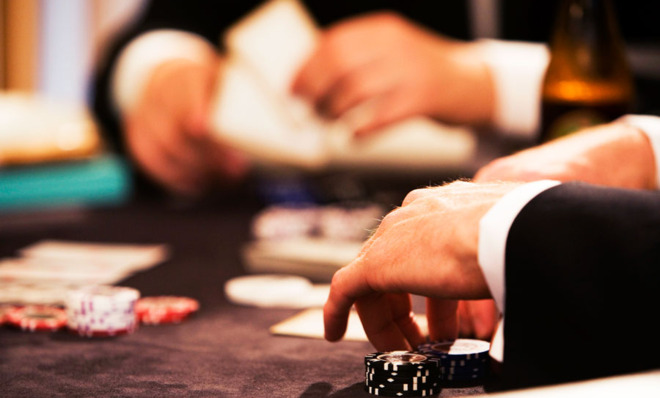Why it's wise to gamble first, eat later
Hungry people make smarter choices

A free daily email with the biggest news stories of the day – and the best features from TheWeek.com
You are now subscribed
Your newsletter sign-up was successful

According to conventional wisdom, people in an agitated emotional state tend to make bad, impulsive decisions. Fear and anger often lead us to take actions we later regret.
But a more recent line of research suggests there is much to be said for the intuitive wisdom of the body. According to mind-body oriented scholars such as Antonio Damasio, uncomfortable sensations that inhibit our normal thought patterns can sometimes provide valuable guidance.
A research team led by Utrecht University psychologist Denise de Ridder suggests these thinkers are on to something — at least when the unpleasant feelings are those created by a growling stomach. In a just-published paper, it reports that, when faced with complex situations involving delayed gratification, hungry people make smarter choices.
The Week
Escape your echo chamber. Get the facts behind the news, plus analysis from multiple perspectives.

Sign up for The Week's Free Newsletters
From our morning news briefing to a weekly Good News Newsletter, get the best of The Week delivered directly to your inbox.
From our morning news briefing to a weekly Good News Newsletter, get the best of The Week delivered directly to your inbox.
"In order to make decisions that are advantageous in the long run, people must recognize the risk of loss when being tempted by a bigger reward," the researchers write in the online journal PLoS One. "Our findings show that people in a hot (emotional) state are better able to do so."
They provide evidence for this counter-intuitive thesis by describing three experiments. The first featured 30 university students, who were described as normal weight to slightly overweight. Participants were told to refrain from eating and drinking between 11 p.m. and the time they arrived at the lab, which was either 8:30 or 9:15 the next morning.
Half were served breakfast before beginning the experiment. The others went straight to the task at hand: A computerized version of the Iowa Gambling Task, which requires them to make choices "that have some resemblance with the difficulties of real-life decision making," the researchers write.
Specifically, participants were presented with four decks of cards and instructed to take one card at a time off of the top of any deck. They received 100 euros for each card chosen from decks A and B, or 50 euros for each chosen from decks C and D. However, the decks also contained penalty cards requiring them to give back money, and the amounts deducted were higher in decks A and B.
A free daily email with the biggest news stories of the day – and the best features from TheWeek.com
"This means that decks A and B were disadvantageous in the long run, whereas decks C and D were advantageous in the long run," the researchers explain. To see whether the participants noticed this pattern and acted accordingly, they examined their card selections during the final 60 trials.
"Hungry participants selected more cards from the advantageous decks," the researchers report, noting this is particularly impressive considering previous research has found hunger can decrease one's cognitive performance.
Two other experiments, including one that directly asked questions like "Would you prefer 27 euros today, or 50 euros in 21 days?" produced similar results. "Hunger promoted rather than compromise complex decisions," he researchers report. "Hungry participants were better able to resist (hypothetical) choices that brought immediate rewards but were ultimately disadvantageous."
"It may be that hot states in general, and hunger and appetite in particular, do not necessarily make people more impulsive, but rather make them rely more on gut feeling, which benefits complex decisions with uncertain outcomes," de Ridder and her colleagues conclude. "Alternatively, it may be that hot states do increase impulsivity, but that impulsivity is not necessarily bad."
Hunger is a very specific sensation, of course, and other emotions will need to be tested before coming to any wide-ranging conclusions. But this study suggests that under certain circumstances — like when we're in need of nourishment — our intuitive sense is to be trusted over our confused, confounded cognitive abilities.
So perhaps Kenny Rogers' maxim needs to be amended. Yes, you've got to know when to hold 'em and know when to fold 'em, but you're more likely to do so if you wait until after the game to chow down.
Pacific Standard grapples with the nation's biggest issues by illuminating why we do what we do. For more on the science of society, sign up for its weekly email update or subscribe to its bimonthly print magazine.
More from Pacific Standard...